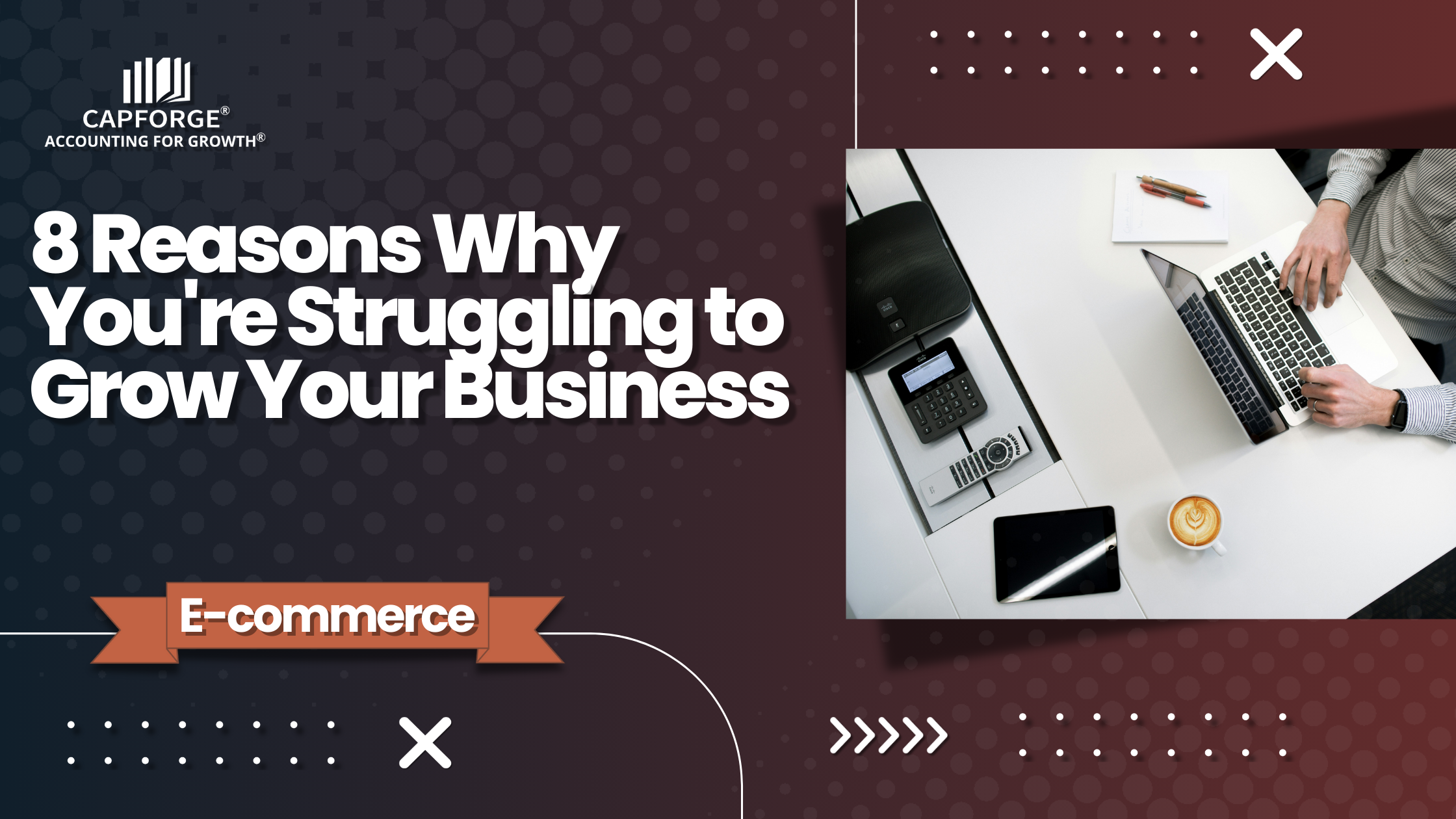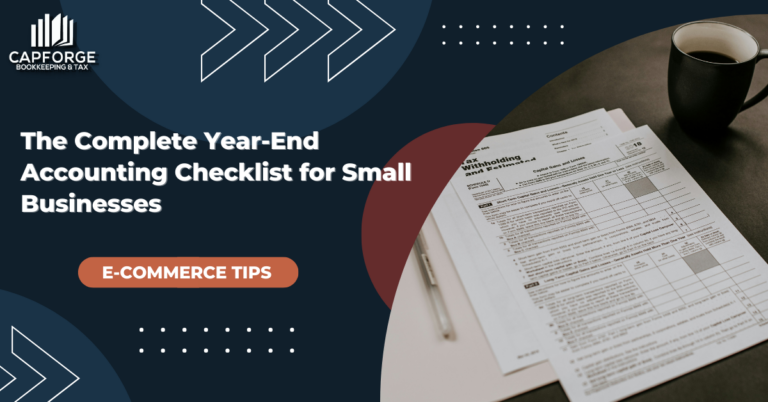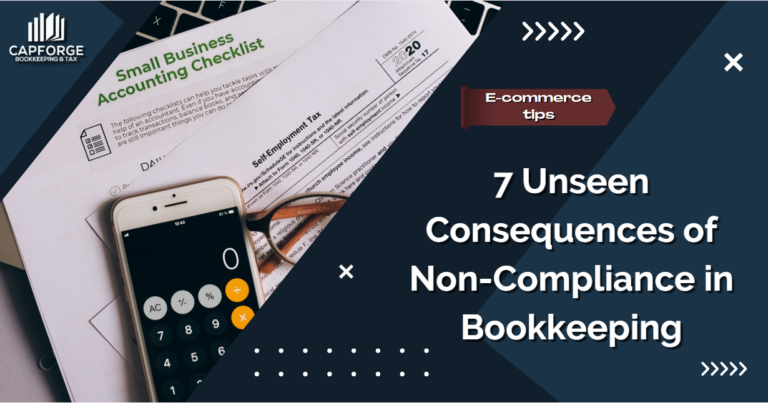8 Reasons Why You’re Struggling to Grow Your Business
Running a business is exciting, but if you’ve hit a plateau, it can feel frustrating. You started strong, saw some success, and now—nothing. Growth has stalled, customers aren’t coming in as quickly, and revenue isn’t climbing the way you expected. Sound familiar? You’re not alone. Many business owners experience this phase, and the good news is that there are clear reasons why it happens. More importantly, there are solutions.
If you’re struggling to grow your business, it’s time to take a step back and analyze the roadblocks holding you back. Let’s dive into some common reasons why businesses fail to scale and what you can do about it.
1. You Don’t Have a Clear Growth Strategy
Many business owners focus on the day-to-day operations without a structured plan for growth. Hoping for word-of-mouth referrals or relying on a single marketing method isn’t enough. Growth requires a strategy.
Example:
Imagine a local coffee shop that gets steady traffic from passersby but doesn’t actively market itself. The shop owners assume their great coffee will bring more customers. Meanwhile, a competitor across town invests in social media, email marketing, and a loyalty program. Over time, the competitor’s shop grows while the first business remains stagnant.
Solution: Develop a growth plan. Identify where you want your business to be in the next year, two years, or five years. Break it down into actionable steps, whether that’s increasing marketing efforts, launching new products, or expanding into new markets.
2. You’re Targeting the Wrong Audience
If your business isn’t growing, you might not be reaching the right customers. Some businesses assume that “everyone” is their audience, but this broad approach leads to wasted marketing dollars and missed opportunities.
Example:
A fitness coach offers personal training services but doesn’t specify a target market. They try to attract both bodybuilders and people looking for light exercise. The messaging is too generic, and as a result, potential clients don’t see why they should choose this coach over someone else with a specialized program.
Solution: Define your ideal customer. Understand their needs, preferences, and problems. Then tailor your marketing efforts to speak directly to them. The more specific your messaging, the more likely you are to attract and retain loyal customers.
3. Weak Online Presence and Marketing
If your business isn’t online—or your digital presence is weak—you’re missing out on major growth potential. Today, most consumers search for businesses online before making a purchase. If they can’t find you or your website looks outdated, they’ll move on to a competitor.
Example:
A small boutique owner relies solely on foot traffic for sales. They have a website, but it’s rarely updated, and their social media pages are inactive. Meanwhile, a competing boutique consistently posts engaging content, responds to customers online, and runs digital promotions. Guess which one is growing faster?
Solution: Strengthen your online presence. Keep your website updated, use social media strategically, and invest in digital marketing efforts such as search engine optimization (SEO) and paid ads. Engage with customers online to build trust and credibility.
4. Poor Financial Management
Even if sales are coming in, poor financial management can hinder business growth. If you’re not tracking expenses, managing cash flow, or reinvesting profits wisely, you may struggle to expand.
Example:
A business earns $500,000 in revenue but spends excessively on unnecessary expenses—luxury office space, high-end furniture, and too many employees before scaling properly. When an unexpected downturn hits, they don’t have enough cash reserves to keep operating smoothly.
Solution: Stay on top of your finances. Regularly review your cash flow, cut unnecessary costs, and reinvest profits strategically. Consider working with a financial advisor or accountant to ensure long-term financial stability.
5. Lack of Innovation or Differentiation
Standing out in a crowded market is essential. If your business offers the same products or services as everyone else, why should customers choose you?
Example:
A restaurant opens in a busy city with a menu similar to dozens of other eateries nearby. Without a unique selling proposition—such as a signature dish, themed dining experience, or exceptional customer service—it struggles to gain traction.
Solution: Identify what makes your business unique. Innovate by offering something different, whether it’s a unique product, outstanding customer service, or a personalized experience. Stay ahead of industry trends and adapt when necessary.
6. Failing to Adapt to Market Changes
The business world evolves constantly. If you’re not keeping up with trends, customer preferences, or technological advancements, you risk falling behind.
Example:
A retail store refuses to offer online shopping because they believe their in-store experience is enough. Meanwhile, competitors embrace e-commerce, offering convenience and online deals. As consumer behavior shifts toward digital shopping, the traditional retailer sees a decline in sales.
Solution: Stay flexible and adaptable. Monitor market trends, listen to customer feedback, and be willing to pivot when needed. Whether it’s adopting new technology, adjusting pricing, or changing your business model, staying ahead of the curve ensures continued growth.
7. Neglecting Customer Experience
Customer experience can make or break your business. If customers have a bad experience, they won’t return—and they’ll tell others.
Example:
An online store sells great products but has slow response times for customer inquiries and a complicated return process. Frustrated customers leave negative reviews, deterring new buyers. Over time, sales decline.
Solution: Prioritize customer service. Offer seamless communication, hassle-free returns, and personalized interactions. Satisfied customers will return and refer others, driving organic growth.
8. Scaling Too Quickly Without a Solid Foundation
Rapid growth sounds appealing, but expanding too fast without proper systems can lead to disaster. If your operations, finances, or staffing aren’t prepared for the demand, it can cause major setbacks.
Example:
A small business secures a big contract and rushes to hire staff and open new locations. However, they don’t have efficient processes in place, leading to operational chaos. Eventually, they can’t meet customer expectations, damaging their reputation.
Solution: Grow at a sustainable pace. Before scaling, ensure you have the right infrastructure, staff, and financial stability. Test expansion strategies on a smaller scale before making large investments.
Get Started Today With CapForge’s Bookkeeping & Tax Services
Take control of your business finances with CapForge. Our expert team makes managing your payroll simple so you can focus on what really matters—growing your business.
Partner with us today and discover the peace of mind that comes from knowing your financials are in good hands.
Send an email to info@capforge.com or contact us at 1-858-633-3573 to get started. Additionally, you can fill out the form below and we’ll be happy to attend to your needs!








